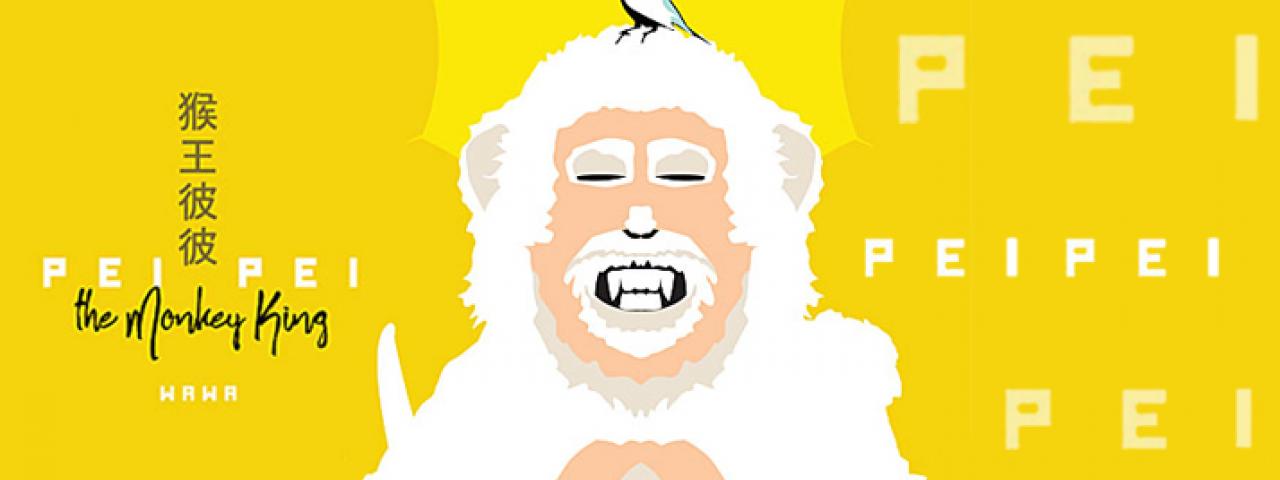
5月11日,上海纽约大学本学期最后一次读书会,
以下是三人的诗作与诗歌翻译作品,敬请赏鉴。
Flying Tree (originally published in Cha)
by Lo Mei Wa and translated from the Chinese by Henry Wei Leung
飛樹
每層樓有三十五個鳥籠,每座大樓有四十層樓,每處有五百座大樓,
有好多好多鳥籠。夜了籠裡便逐一點燈。一盞、兩盞、三盞。
璀璨。窗外時有飛樹經過,看籠裡的孩子。鳥籠太小,我早便長出太
有天,我打開籠伸出雙手,飛樹便接走了我。今夜,我踏著飛樹回到
鳥都變了一頭頭大笨象,一出鳥籠便趕忙塞進升降機裡。
FLYING TREE
Every story has thirty-five birdcages, every tenement has forty stories, every place has five hun-
dred tenements, and the city has many places, so altogether it has many, many birdcages. In the
evenings, the cages are lit: one bowl of light, another bowl, a third bowl. The golden caged lights
of the city are resplendent when seen from ashore. From time to time, flying trees stop by the
windows to see the children within. The cages are very small; when I was little I became so big
that I could no longer move inside. Then one day I opened the cage, opened my hands, and was
picked up by a flying tree. Tonight, I rode back to my old cage on a flying tree, to discover that
all the small birds here have grown into bumble-elephants. They jostle out of their cages, then
cram into elevators.
Three poems from Dementia Blog (originally published by The Brooklyn Rail)
By Susan M. Schultz
80
There are glorious entertainments in this miserable world, could we find them out. The ancient mask looked astonished before the man sledge-hammered it. “Authorities worry the iconoclastic group of ISIS will destroy the ancient city of Palmyra.” 1981: tiny women, shawls thrown over their bent backs, leaned to kiss icons in Novgorod's “working churches.” No one wins the zero-sum game. My second grade teacher's teacher was ninth in line when the Gestapo shot every tenth man. Shorten the sums: kill every fifth man, because every fourth will betray him. Then gin up for the sixth. Surely someone believes your grand idea, but you can't see through their half-closed eyes. The penal colony's deathly invention kept me awake at night. I'm told it's funnier in German.
—20 May 2015
82
But there are a sort of Saints meet to be your companions...but that they be concealed. My desire to unseal them makes me sleepy. The eyelid is a drive-in, my body the car into which an old cord winds. Keep windows open to receive the dented sound. I'm down to words, the ones that float like feathers after bird-storms. A small bundle of curly hair in the bathroom means my husband cut his hair. Phone call means a colleague died. After long sickness, a sudden fall. I pick up the taut curls, deposit them in the trash. I put the phone down, scratch a kitten, try to summon his voice.
—23 May 2015
83
They will exchange Souls with you. He remembers her as the girl from his village. He remembers his house by a red circle on the photograph. He remembers that she eats papaya, and he remembers her nose. India, he tells us, migrates north, as Tibet settles to the south. Kathmandu is the paper plate on the surface of a pool. Aftershocks are earth's grief. A man's head emerges from the rubble, white as stone, like my mother two hours after her death. Two metaphors do not make my mother a statue, the Himalayas a section of black foam, cut in ragged halves. The shock is that land dies, too. Mountains are bodies of evidence, stick to earth's slip. Mt. Everest just shrank an inch. “We cannot stay here, but where is there to go?”
—26 May 2015
Pei Pei Wept (originally published by the Asian American Writers Workshop)
By Wawa, translated by Henry Wei Leung
猴王彼彼哭了
猴王彼彼哭了
那天 我長大了
那背影 一定是彼彼
牠擉坐在山坡上一角
對著山下的城市咆哮
我不敢走近
波波,原子筆,珊珊
難道他們從沒再上山嗎?
他們不就在山下的深水埗
黃大仙,又一城成家立室嗎?
那背影 一定是彼彼
牠擉坐在山坡上一角
對著山下的城市哀鳴
我低著頭 在牠身後繞過
彼彼 我回來見過你了
見你雙腿不見了
坐在天梯前發呆
我便下山去
猴王彼彼哭了
那天 我長大了
變了小孩
Pei Pei Wept
Pei Pei the Monkey King wept
That day, I came of age
I saw from behind It must have been him
He sat alone on the bluff of a slope
Thundering to the city under the slope
I dared not approach
Ballpoint, Shan Shan, Bo Bo,
Could it be they’ve never made it back up?
Aren’t they just below, in Sham Shui Po,
Wong Tai Sin, Festival Walk, building their homes?
I saw from behind It must have been him
He sat alone on the bluff of a slope
Wailing to the city under the slope
I lowered my head, made my way around
Pei Pei, I have returned to see you
I saw you with your disappeared legs
Sitting at the stairway to heaven in a daze
And I descended
Pei Pei the Monkey King wept
That day, I came of age
And became a child



 沪公网安备31011502011250号
沪公网安备31011502011250号